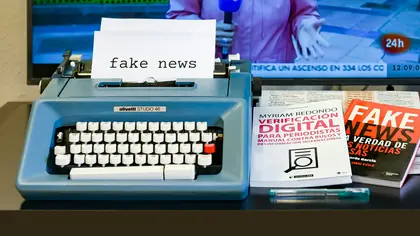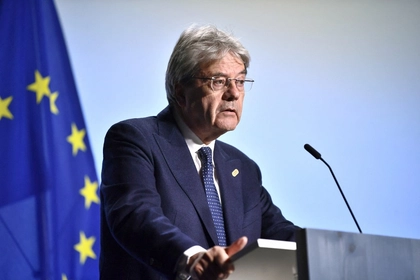A message on X asked a major French channel to verify what seemed to be a Deutsche Welle report about a Ukrainian artist who "sawed down the Eiffel Tower."
"I see these kind of stories every day. Official media don't talk about them, what should I believe?" "Kathe" asked BFMTV on December 4.
JOIN US ON TELEGRAM
Follow our coverage of the war on the @Kyivpost_official.
But this was no innocent question, this was part of an online disinformation campaign blamed on Russia that involves not just the spreading of anti-Ukrainian false news, but also challenges Western media outlets to verify it.
It first appeared in September, and is a "vast enterprise of diversion" targeting journalists, experts say.
It is seemingly part of Russia's war on Ukraine, almost two years on since Moscow launched an invasion that has claimed tens of thousands of lives.
The "Antibot4Navalny" collective that tracks inauthentic Russian-language accounts on X, formerly Twitter, has christened this new disinformation campaign, operation "Matryoshka", after the Russian stacking dolls that are placed one inside another.
In the space of a few hours, "Kathe" had also contacted dozens of other major French media such as Paris Match, FranceInfo, Le Figaro and Le Parisien.
The X account then remained inactive for two weeks before publishing a picture of graffiti, purportedly from Los Angeles and depicting Ukraine President Volodymyr Zelensky as a homeless person begging.
Subsequently, another X user asked various media to verify it.

Moscow Prime Suspect for Sabotage Aimed at Disrupting Olympic Games
The "Antibot4Navalny" collective trackers provided information that allowed AFP to identify scores of accounts that were also asking media to verify false stories.
The accounts AFP identified mostly appeared to have been dormant and then pirated.
These accounts posted frequently, sometimes as often as once per minute, in a tell-tale sign of false behaviour.
AFP analysis found that accounts requesting media to verify false news subsequently re-published them soon afterwards.
- 'Diversion for fact-checkers' -
Posts that are part of this campaign always target Ukrainians and attempt to foster the idea that Europe and the United States are weary of Kyiv.
Examples include thefts from the Paris catacombs by a Ukrainian, military aid misappropriated by Ukraine, doctored or fake graffiti of Zelensky, false adverts on New York's Times Square.
Most of these images were first posted by Russian users, generally on the Telegram social media platform and news blogs, according to AFP research.
This campaign followed in the wake of another in recent months called "Doppelganger", which consisted of posting anti-Ukraine fake images that impersonated Western media.
French Intelligence services attributed that to Russia, experts told AFP.
David Chavalarias, director of the French scientific research centre CNRS, said this campaign is about "diversion for fact-checkers" in order to keep them "occupied on crude subjects (that are) difficult to verify".
This campaign can also give visibility to false information, said Chavalarias.
"The goal seems to be to capture the attention of fact-checkers in order to interfere with their work," said researcher Julien Nocetti, who specialises in cyber issues.
He added that the objective also seemed to be to generate more long-term effects on the narrative of the war by testing the ability of certain content to go viral.
The Russians are learning "and there is a type of agility in testing different methods," he added.
A French security source told AFP that Russia is "looking for visibility, they want us to talk about them, for better or for worse".
- 'Battle of narratives' -
The same bots that took part in the "Doppleganger" campaign also shared anti-Ukrainian posts as part of the "Matryoshka" operation.
A December 2023 report by Insikt Group, the threat research division of US cybersecurity company Recorded Future, indicated that the "Doppleganger" campaign was still highly active on social media, using at least 800 bots dedicated to promoting fake news impersonating Ukrainian media.
According to German press last week, Germany has uncovered a vast "pro-Russian disinformation campaign" using thousands of fake X accounts to publish anti-Ukraine content alongside the visuals of German media.
"Ukraine continues to be the country most often targeted by information manipulation -- not by accident," European Union foreign policy chief Josep Borrell said last week during a press conference about disinformation and foreign interference.
"We are engaging on a 'battle of narratives'," he added. "Security is no longer just a matter of weaponry... It is a matter of information.
You can also highlight the text and press Ctrl + Enter






